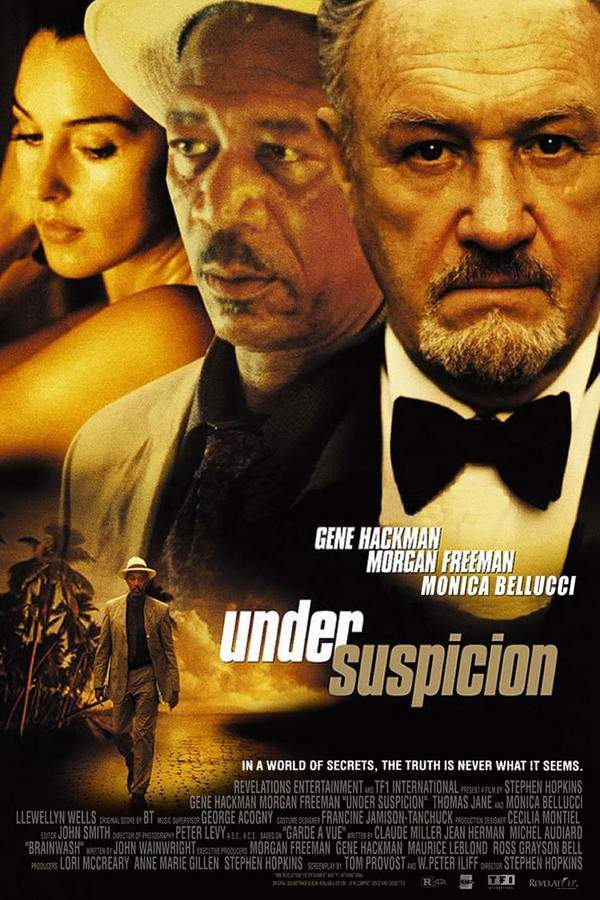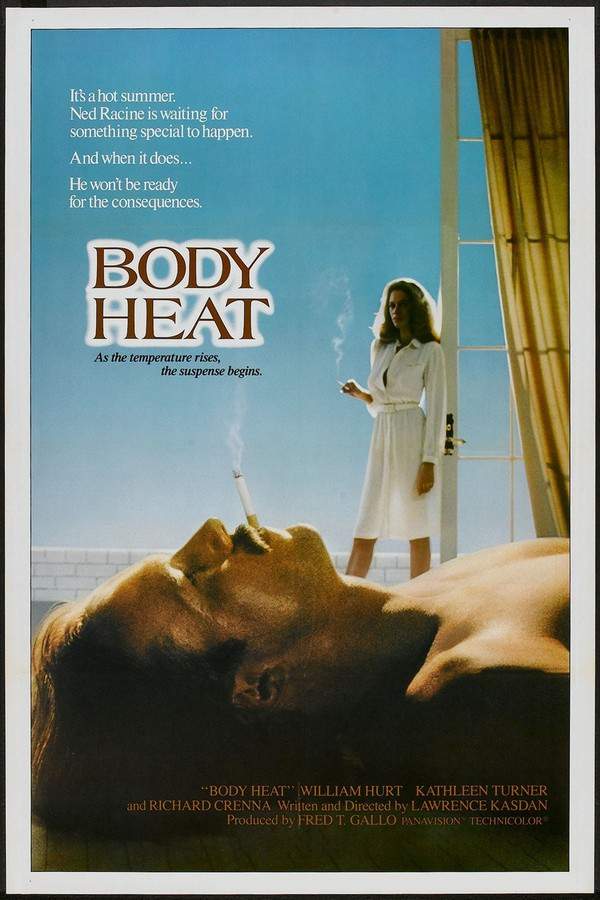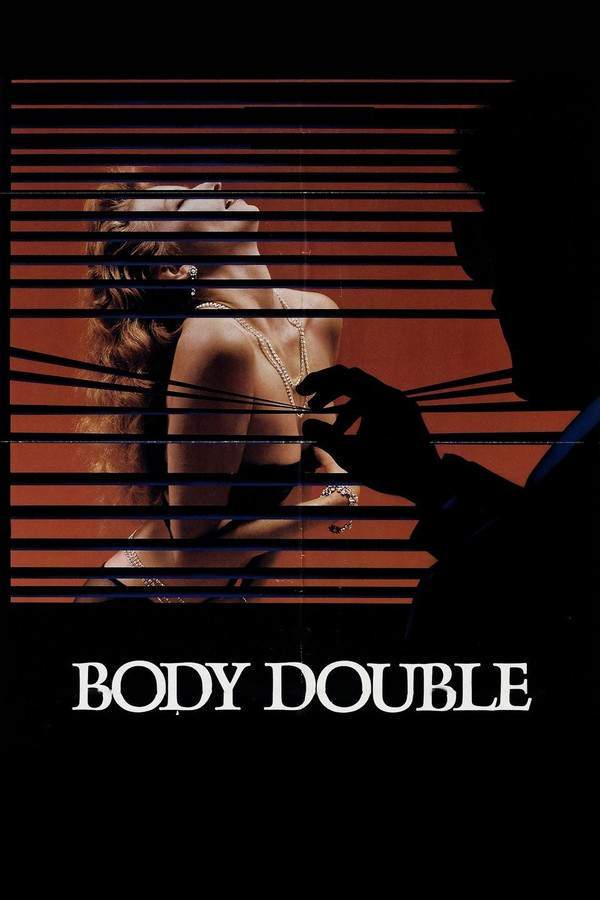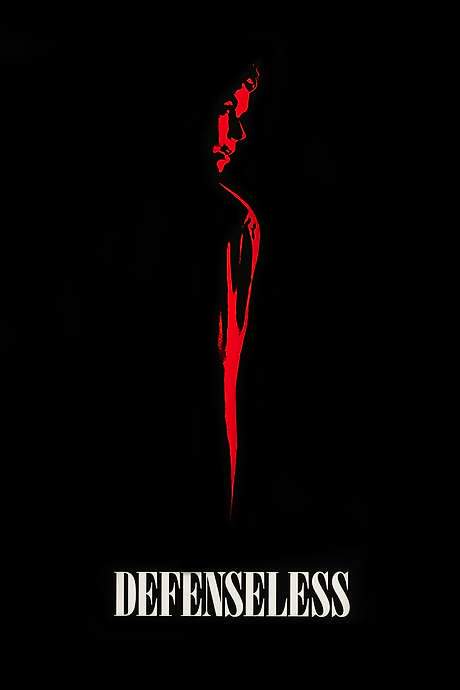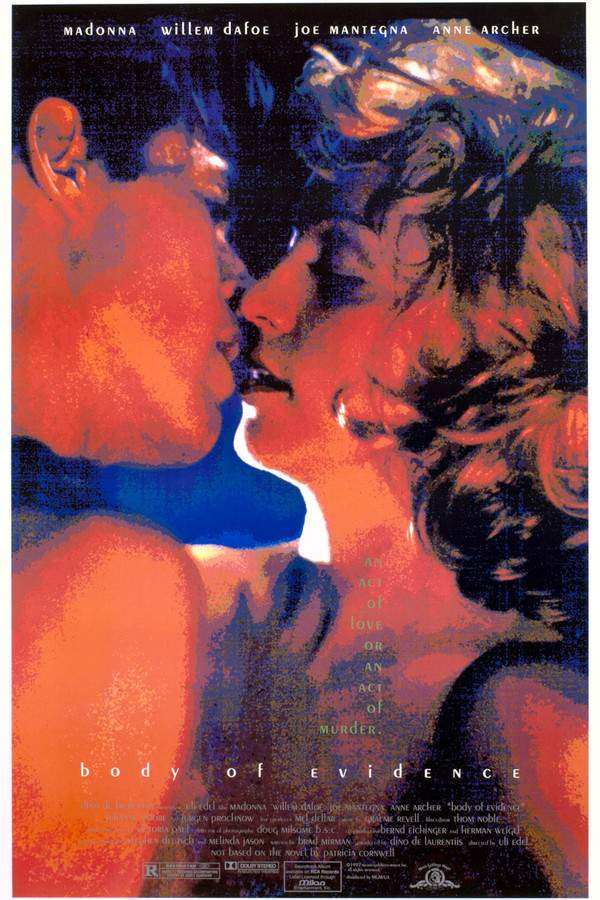
Body of Evidence 1993
Directed by
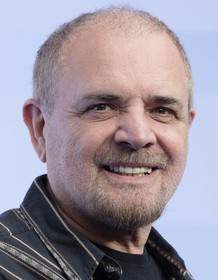
Uli Edel
Made by

Metro-Goldwyn-Mayer (MGM)
Test your knowledge of Body of Evidence with our quiz!
Body of Evidence Plot Summary
Read the complete plot summary and ending explained for Body of Evidence (1993). From turning points to emotional moments, uncover what really happened and why it matters.
An older gentleman, Andrew Marsh, finds himself engrossed in a homemade pornographic tape. Tragedy strikes as it is later disclosed that he succumbed to fatal complications associated with erotic asphyxiation. The primary suspect behind this disturbing case is none other than the woman featured in the film, Rebecca Carlson (Madonna). Following the charges laid against her for murder, she secures the legal services of lawyer Frank Dulaney (Willem Dafoe).
The courtroom drama unfolds in Portland, Oregon, where the tension begins to rise. It doesn’t take long before an intense, sadomasochistic sexual relationship blossoms between Rebecca and Frank. This clandestine affair occurs right under the nose of Dulaney’s unsuspecting wife, who is played by Julianne Moore. Their passionate encounters escalate to the point where Rebecca inflicts hot candle wax onto Frank during their intimate activities.
Rebecca continuously asserts her innocence, both in private conversations with Frank and during the court proceedings. However, the prosecutor, district attorney Robert Garrett (Joe Mantegna), is determined to paint a picture that suggests Rebecca intentionally caused Marsh’s death through their sexual exploits, motivated by the lucrative sum of $8 million that he left her in his will.
As the trial progresses, the testimony of Marsh’s private secretary, Joanne Braslow (Anne Archer), reveals that her own intimate relationship with him could have contributed to his demise, thus introducing significant doubt surrounding Rebecca’s guilt. Despite his undeniable physical attraction to Rebecca, Frank grapples with a lack of trust in her intentions. His wife begins to notice the marks on his skin, leading her to piece together the affair that has been unfolding behind her back.
In court, Rebecca’s emotional testimony conveys that she never intended for her husband’s death to occur, swaying the jury and ultimately earning her an acquittal. However, as she exits the courtroom, she mockingly thanks Frank for his role in freeing her. It dawns upon Frank that Rebecca indeed orchestrated Marsh’s murder through their sexual relationship, but due to the stringent rules of attorney-client privilege, he cannot disclose what he has come to know.
The implications of the double jeopardy rule weigh heavily on Frank’s mind; it dictates that she cannot be tried again for the same crime, even with new evidence or an admission of guilt. That very night, he confronts her at her home, discovering her in the company of Marsh’s doctor, Alan Payley (Jürgen Prochnow). In an unsettling conversation, they both discuss their heinous plot against Marsh for his wealth. Feeling invulnerable, Rebecca warns Payley to keep quiet as he could find himself on trial for perjury.
In a moment of heated anger, Payley violently confronts Rebecca, leading to a shocking escalation where he shoots her twice. She plummets from a window, meeting her demise in the water below.
In a haunting conclusion, as the authorities apprehend Payley, Frank turns to Garrett, poignant and contemplative, stating, “You should have won the case, Rob.” The response is chilling; Garrett coldly asserts, “I did.” The story leaves viewers with a profound sense of moral ambiguity and the unsettling consequences embedded within the complex dynamics of power and desire.
Body of Evidence Timeline
Follow the complete movie timeline of Body of Evidence (1993) with every major event in chronological order. Great for understanding complex plots and story progression.
Andrew Marsh's Death
The film opens with Andrew Marsh, an older man, observing a homemade pornographic tape. Unfortunately, he dies from complications related to erotic asphyxiation, setting off a chain of events that leads to a shocking trial.
Rebecca Carlson Charged
Rebecca Carlson, the woman seen with Marsh in the tape, becomes the main suspect and is charged with his murder. Her motivations are questioned as she stands to inherit $8 million from his will, which raises suspicions of foul play.
Frank Dulaney Takes the Case
Rebecca enlists lawyer Frank Dulaney to defend her in court. As they prepare for the trial, Frank struggles with his feelings towards Rebecca, complicating their professional relationship.
Affair Behind Closed Doors
Unbeknownst to Frank's wife, Frank and Rebecca enter into a sadomasochistic sexual relationship while working on her case. Their passionate encounters escalate, with Rebecca even playing with candle wax as part of their encounters.
The Prosecution's Case
During the trial, the prosecutor Robert Garrett aims to prove that Rebecca deliberately killed Marsh during their sexual activity. The tension in the courtroom builds as evidence is presented to show that she was motivated by greed.
Joanne's Testimony
The testimony of Marsh's private secretary, Joanne Braslow, introduces doubt into the prosecution's case. She reveals her own intimate relationship with Marsh, suggesting that his death could have resulted from a variety of factors.
Rebecca's Emotional Testimony
Rebecca takes the witness stand to share her side of the story. Her heartfelt performance convinces the jury of her innocence, as she denies any intention to kill Marsh during their intimate encounter.
Acquitted of Murder
The jury ultimately acquits Rebecca of the murder charge. Though she walks free, Frank is left grappling with the implications of the verdict and the truth he now believes about her actions.
The Realization
After the trial, Frank comes to the grim realization that Rebecca actually killed Marsh deliberately. He is unable to disclose this truth due to attorney-client privilege, feeling trapped by legal constraints.
Confrontation at Rebecca's Home
Frank visits Rebecca at her home, where he discovers her with Marsh's doctor, Alan Payley. They discuss the conspiracy to murder Marsh, revealing a sinister plot that had been disguised during the trial.
Physical Assault
In a heated moment, Alan Payley lashes out at Rebecca after she mocks their previous involvement. The confrontation escalates, leading to an unexpected and violent outcome.
Tragic Fall
In a shocking twist, Rebecca is shot by Payley, leading her to plunge from the window of her home. The scene captures the chaos and instability created by their deadly game.
Aftermath
As the police arrive and take Payley away, Frank is left to reflect on the events that unfolded in the courtroom. He confronts the prosecutor Garrett, hinting at the moral ambiguity surrounding justice in this case.
Final Words
In the closing moments, Frank tells Garrett that he should have won the case, indicating the miscarriage of justice at hand. Garrett's cold reply highlights his view that the legal system has its own standards, regardless of morality.
Body of Evidence Characters
Explore all characters from Body of Evidence (1993). Get detailed profiles with their roles, arcs, and key relationships explained.
Frank Dulaney (Willem Dafoe)
Frank Dulaney is a lawyer who finds himself enmeshed in a passionate but dangerous affair with his client, Rebecca. Despite his professional demeanor, Frank struggles with intense moral conflict and feelings of attraction, leading to a tumultuous emotional journey. His character embodies the complexities of love, trust, and the ethical dilemmas faced in the legal profession.
Rebecca Carlson (Madonna)
Rebecca Carlson is a seductive character embroiled in a murder trial. Her charm and manipulation conceal her true nature, leading Frank and others into a web of deceit. Despite her claims of innocence, Rebecca's actions paint a picture of a woman unafraid to use her sexuality for personal gain, ultimately revealing her as a master manipulator.
Robert Garrett (Joe Mantegna)
Robert Garrett serves as the district attorney, determined to bring Rebecca to justice. His character is driven by a sense of duty and the pursuit of truth. Yet, he also represents the moral challenges within the legal system, as he navigates the complexities of the case and the emotional turmoil it brings.
Joanne Braslow (Anne Archer)
Joanne Braslow is Andrew Marsh's private secretary whose relationship with him introduces significant questions about the case. Her testimony brings doubt to Rebecca's guilt while revealing the complicated dynamics of love and loyalty in high-stakes situations. She demonstrates the impact of personal relationships on broader events.
Body of Evidence Settings
Learn where and when Body of Evidence (1993) takes place. Explore the film’s settings, era, and how they shape the narrative.
Time period
The time period is contemporary and reflects modern societal dynamics that impact personal relationships and legal proceedings. Themes of morality, wealth, and eroticism are highlighted within the societal context of today’s America.
Location
Portland, Oregon
Portland, Oregon, serves as the backdrop for this intense courtroom drama. Known for its vibrant arts scene and diverse culture, the city encapsulates a sense of intrigue that complements the film's themes of power and desire. The urban setting provides a stark contrast to the intimate yet dangerous relationship between the characters.
Body of Evidence Themes
Discover the main themes in Body of Evidence (1993). Analyze the deeper meanings, emotional layers, and social commentary behind the film.
💔
Betrayal
Betrayal takes center stage as relationships intertwine with deceit and hidden agendas. Rebecca's manipulative tactics ultimately lead to tragic outcomes, underscoring the moral complexities of trust between individuals. The emotional intensity of betrayal is felt not only in personal relationships but also within the courtroom drama.
🧩
Ambiguity
The film explores moral ambiguity, questioning the notion of guilt and innocence. As Frank wrestles with his feelings for Rebecca while contemplating the implications of attorney-client privilege, the boundaries between right and wrong blur. This theme invites viewers to consider the nuances of human behavior and motivations.
💵
Greed
Greed operates as a driving force behind the motivations of the characters. Rebecca's desire for wealth prompts deadly actions that lead to tragic consequences, reflecting the darker side of ambition. The film provokes thought about the lengths individuals will go to achieve financial gain, even at the cost of others' lives.

Coming soon on iOS and Android
The Plot Explained Mobile App
From blockbusters to hidden gems — dive into movie stories anytime, anywhere. Save your favorites, discover plots faster, and never miss a twist again.
Sign up to be the first to know when we launch. Your email stays private — always.
Body of Evidence Spoiler-Free Summary
Discover the spoiler-free summary of Body of Evidence (1993). Get a concise overview without any spoilers.
In the shadowed streets of Portland, a city where rain seems to mute every confession, the sudden death of an elderly magnate sends a ripple of unease through a tightly knit elite. The case quickly becomes a crucible for power, money, and the fragile veneer of respectability that the community clings to, setting the stage for a legal battle that feels as much about personal redemption as it is about the law.
Rebecca Carlson, a strikingly poised woman thrust into the spotlight, inherits a fortune that feels both a windfall and a burden. Her sudden elevation places her under the relentless gaze of a determined district attorney, while the media spins a narrative of greed and suspicion. As she navigates the maze of public opinion and private doubt, the audience is drawn into a world where every glance can convey accusation and every silence hints at hidden motives.
Enter Frank Dulaney, a seasoned defense attorney whose reputation rests on his sharp intellect and his willingness to walk the razor’s edge between legal strategy and moral compromise. Paired against Robert Garrett, the prosecutor whose dedication to justice is matched only by his personal conviction, the courtroom becomes a theater of cat-and-mouse intrigue. Their exchanges crackle with tension, blending razor‑sharp dialogue with a subtle undercurrent of obsession that blurs the lines between professional duty and personal curiosity.
The film’s tone is a slow‑burning psychological thriller, suffused with a muted palette of rain‑slicked streets and austere courtrooms. It invites viewers to linger over the uneasy chemistry between its central figures, to feel the weight of secrets that linger just beyond reach, and to question how far ambition will drive someone when the promise of wealth hangs in the balance.
Can’t find your movie? Request a summary here.
Movies with Similar Twists and Themes
Uncover films that echo the narrative beats, emotional arcs, or dramatic twists of the one you're exploring. These recommendations are handpicked based on story depth, thematic resonance, and spoiler-worthy moments — perfect for fans who crave more of the same intrigue.
Featured on this page

What's After the Movie?
Not sure whether to stay after the credits? Find out!
Explore Our Movie Platform
New Movie Releases (2025)
Famous Movie Actors
Top Film Production Studios
Movie Plot Summaries & Endings
Major Movie Awards & Winners
Best Concert Films & Music Documentaries
Movie Collections and Curated Lists
© 2025 What's After the Movie. All rights reserved.


